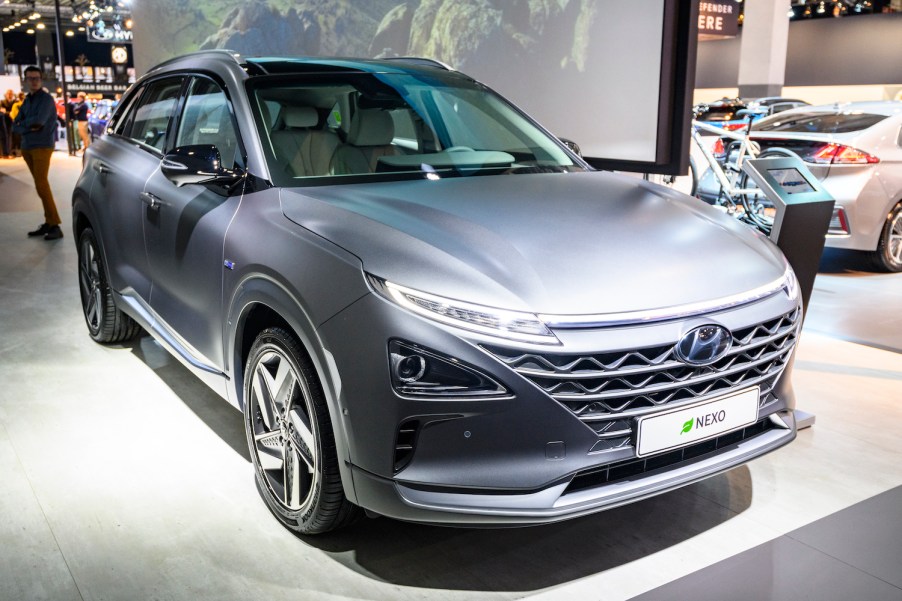
Hyundai to Announce a Hydrogen Sports Car
Mark September 7 on the calendar to witness Hyundai’s “Hydrogen Wave” announcement. Hyundai released a few videos depicting cars under the guise of being hydrogen-powered earlier this week, revealing some interesting details. However, where does hydrogen fit in the fight to save the planet? Are hydrogen-powered cars more or less viable than electric cars? There are many factors to consider before pulling the trigger on buying a hydrogen car, but before all of that, is Hyundai even up to the task?
Where hydrogen-powered cars stand today

Hydrogen cars are hybrids, but instead of their generator using gas, it uses hydrogen. Hydrogen’s obvious benefit is its “waste” is water. Hydrogen is also a highly abundant energy source. The first production hydrogen car was the Honda FCX, which Honda has made since 2008. Toyota also makes a hydrogen-powered hybrid called the Mirai, and the only other hydrogen-powered car in production is the Hyundai Nexo SUV.
A big disadvantage to hydrogen-powered cars is the lack of infrastructure. For these cars to be more practical, more stations need to offer hydrogen. Thankfully Hyundai saw this and is making moves to provide more hydrogen pumps. In terms of price, the Honda Clarity costs $34,000, while the Hyundai Nexo costs $59,000.
How do we know Hyundai is releasing a hydrogen-powered sports car?
The first clue comes from one of the teaser videos, which shows a Hyundai drifting a corner at a racetrack. From the pictures in the video from Hyundai it could be either a coupe or a sedan, has a spoiler, and has sleek lines that create a slope from the roof straight back to the trunk. The fact that it’s drifting suggests it is rear-wheel drive, but it could also be all-wheel drive with a feature that sends more power to the rear.
Can Hyundai make a good sports car?

Hyundai has a reputation for building cheap econobox commuters, but they also have a history of building some interesting sports cars. Before Genesis became a brand, Hyundai built the Genesis sports car, a rear-wheel-drive V6-powered coupe with a manual transmission. Though it was heavy and underperformed for its price point, it was still a borderline luxury sports car through and through.
Today Hyundai makes the Veloster Turbo, which granted is a hatchback, but sporty in its own right. It comes with a manual transmission and a turbocharged inline-four producing 200 horsepower, which is enough considering the Veloster weighs less than 3,000 pounds. It’s safe to say that Hyundai is fully capable of building sports cars.
Hyundai ready to strike with confidence

The Korean car company is poised well to bring more attention to hydrogen-powered cars. Between its Nexo, the infrastructure Hyundai is building, and the September 7 announcement, there could be a big push for this alternative fuel. If Hyundai releases a hydrogen sports car, that could rope in a whole new market, which could accelerate innovation in the alternative fuels sector. Time will tell if this gamble will pay off.


